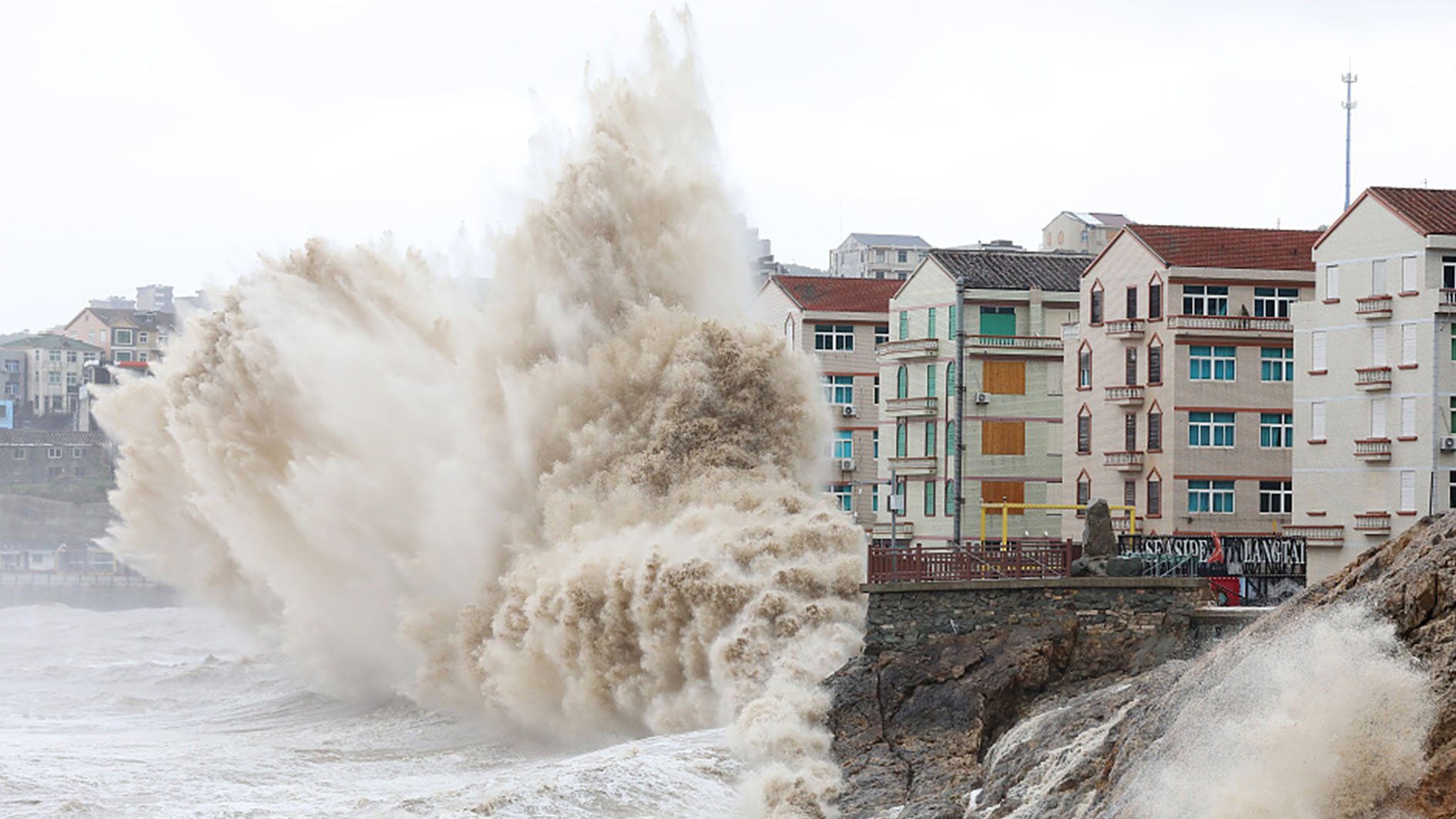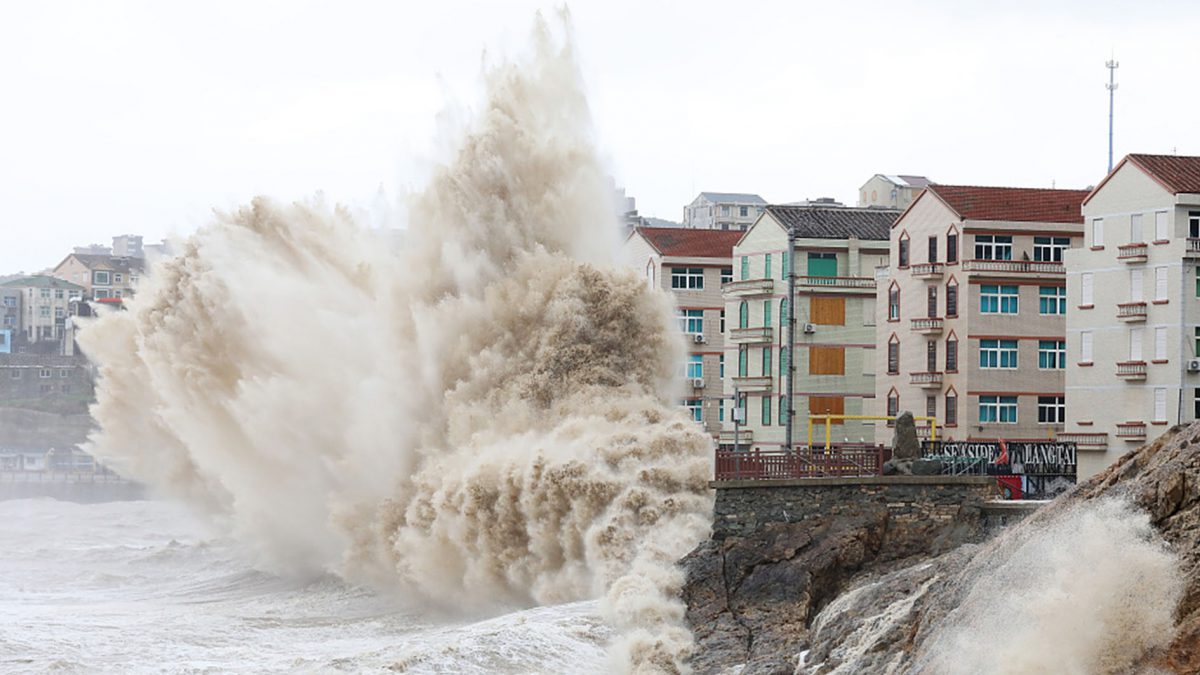Storm intensity increases due to climate change
Climate change has been causing significant fluctuations in the environment, directly impacting rainfall patterns and storm intensity. Recent research and observations by scientists worldwide have provided substantial evidence of these changes. This article will delve into how climate change specifically affects rainfall and storms.
A research team from the Chinese Academy of Sciences discovered that 75% of the Earth’s land surface has experienced increased rainfall variability. Rising global temperatures enhance the atmosphere’s capacity to hold moisture. A warmer atmosphere can retain more water vapor, leading to sudden surges in rainfall and greater fluctuations. Regions that were previously arid may become wetter, and vice versa, resulting in extreme weather events such as floods and droughts.

Typhoon Khanun caused large waves in the eastern coastal areas of Zhejiang province, China. (Photo: CGTN)
Studies also indicate that climate change is not only altering annual rainfall but also modifying rainfall patterns. Rainfall tends to concentrate on a few heavy rain days rather than being evenly distributed throughout the season. This not only affects water resources but also increases the risk of floods and soil erosion, causing damage to agriculture and infrastructure.
A notable finding from this studies is that tropical cyclones, particularly in the Northwest Pacific and South China Sea, have decreased in number but increased in intensity. This decline is attributed to the uneven warming pattern of the oceans, with temperatures rising faster in the Western Pacific compared to the East.

People must cope with unpredictable climate change. (Photo: Bloomberg)
Feng Xiangbo, a tropical cyclone researcher at the University of Reading, suggests that the decrease in the number of storms is due to the uneven warming of the oceans, with temperatures rising faster in the Western Pacific compared to the East. He notes that the atmosphere’s water-holding capacity increases by 7% for every 1°C rise in temperature, while rainfall from tropical cyclones in the United States can increase by up to 40% for each similar degree of warming.
It is evident that climate change is increasing the variability in rainfall and the intensity of storms, posing significant challenges to humanity and the environment. These changes not only directly affect daily life but also raise long-term economic and social issues. To address climate change, global cooperation and decisive actions from nations, communities, and individuals are required.
Source: VTV








